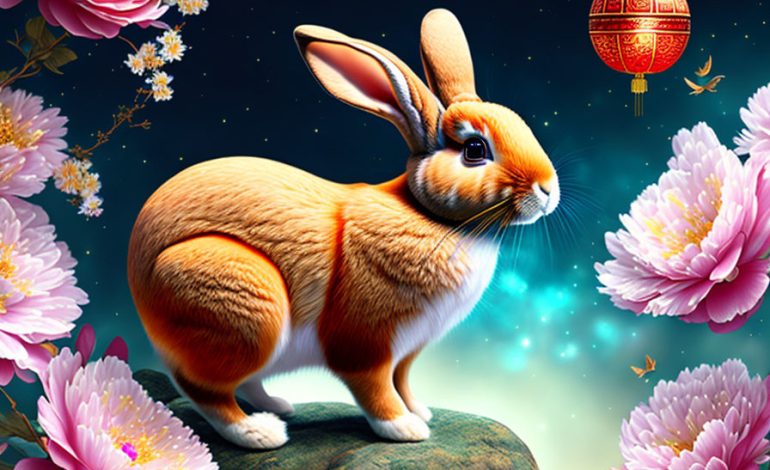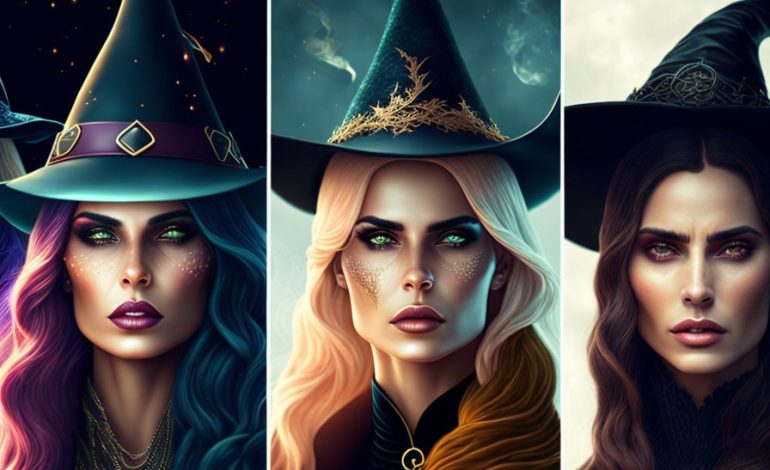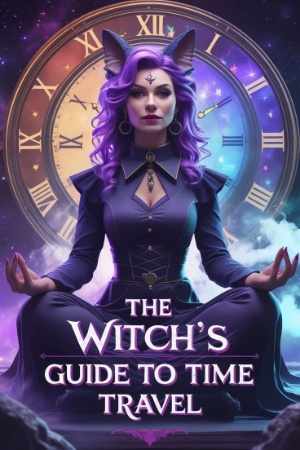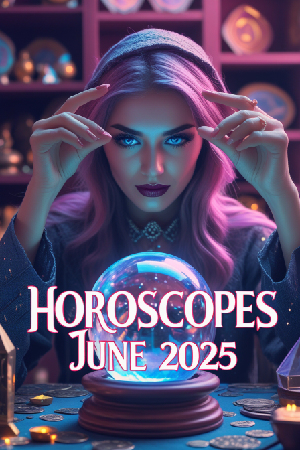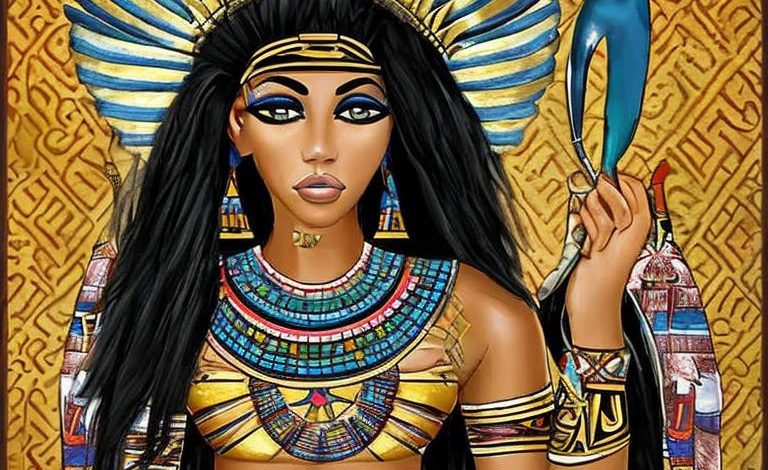
Egyptian astrology is a form of divination that was used in ancient Egypt to predict the future and gain insight into people’s lives. Unlike Western astrology, which is based on the position of the sun, moon, and planets at the time of birth, Egyptian astrology was based on the temple worship of the gods and goddesses, each of whom represented different personality traits and characteristics.
The roots of Egyptian astrology can be traced back to the Predynastic Period (6000-3150 BCE), when the people of Egypt first began to observe the movements of the stars and the sun. By the Old Kingdom (2686-2181 BCE), astrology had become a sophisticated system of belief, with astrologers serving as advisers to pharaohs and other members of the royal court.
Egyptian astrology was based on the idea of decans, which were 36 ten-day periods into which the year was divided. Each decan was associated with a specific star, deity, and personality trait, and the position of the stars at the time of a person’s birth was believed to have a profound impact on their character and fate.
One of the most important symbols in Egyptian astrology is the Scarab Beetle, which represented the cycle of renewal and rebirth and was associated with the god Khepri. Another important symbol was the Sphinx, which was associated with the god Horemakhet and symbolized strength, power, and wisdom.
Egyptian astrology also made use of the zodiac, which was divided into 12 houses and was associated with different deities and personality traits. For example, the first house was associated with the goddess Isis and represented the self, while the second house was associated with the god Taurus and represented material wealth.
In addition to the stars and the zodiac, Egyptian astrologers also took into account the movements of the planets, which were associated with specific gods and had their own unique impact on a person’s life. For example, the planet Mars was associated with the god Horus and represented conflict and war, while the planet Venus was associated with the goddess Hathor and represented love and beauty.
Egyptian astrology was not just a system of belief, but also a practical tool that was used to make important decisions. Astrologers were consulted on matters such as the timing of battles, the building of temples, and the selection of marriage partners.
Despite the decline of the ancient Egyptian civilization, their astrological beliefs and practices continued to influence later cultures, such as the Greeks and Romans. Today, Egyptian astrology remains an important and fascinating field of study, providing a window into the beliefs and practices of one of the world’s oldest and most advanced civilizations.
Houses and Signs in Egyptian Astrology
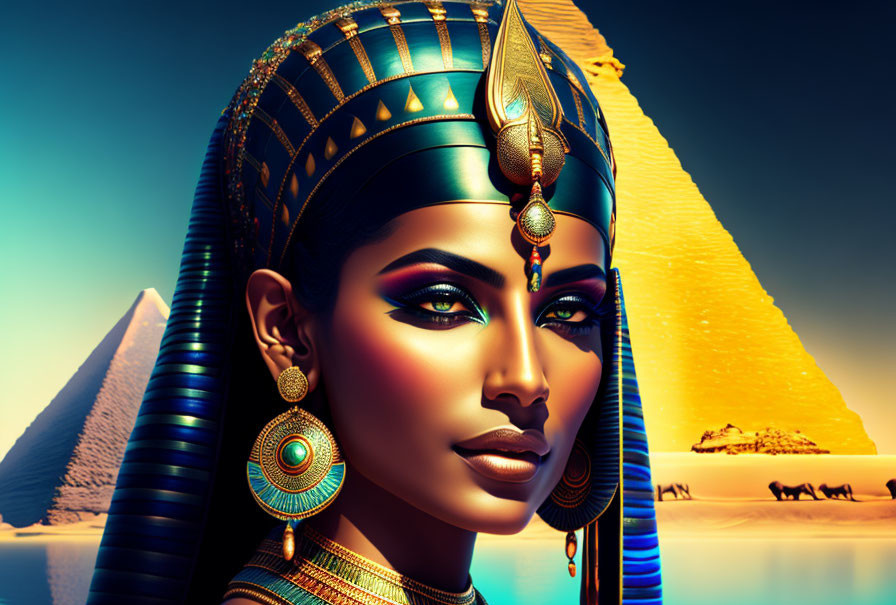
Egyptian astrology consists of 12 signs, each associated with a different deity and representing a specific set of personality traits. These signs were used to describe and predict a person’s behavior, strengths, and weaknesses. In Egyptian astrology, the 12 signs were divided into four groups, each associated with a different element: water, air, earth, and fire.
In Egyptian astrology, there were also 12 houses, which represented different areas of a person’s life and experiences. These houses were used to gain a deeper understanding of how the various signs manifested in a person’s life and what experiences they were likely to have in different areas.
Houses

The 12 houses in Egyptian astrology represented different areas of life, such as self and personality, resources and values, relationships, and spirituality. The houses were used to gain insight into a person’s experiences and circumstances, and to understand the areas in which their astrological influences were strongest.
For example, if a person’s birth chart showed strong influences in the 5th house of creativity and pleasure, it was thought that they were likely to have a natural talent for creative pursuits and to derive a great deal of enjoyment from these activities.
The First House (Isis)
The first house, associated with the goddess Isis, represents the self and is considered the most important of the 12 houses in Egyptian astrology. This house symbolizes a person’s identity, physical appearance, and how they are perceived by others. People who fall into this house are said to be confident, self-assured, and comfortable in the spotlight. They have a strong sense of self and are often very aware of their own strengths and weaknesses.
Being in the first house can also indicate a strong connection to one’s roots and a deep appreciation for tradition and history. People who fall into this house may have a strong attachment to their family and cultural heritage, and they may place a high value on preserving their traditions and way of life.
The Second House (Taurus)
The second house, associated with the god Taurus, represents material wealth and possessions. This house symbolizes a person’s financial resources and their ability to accumulate wealth. People who fall into this house are said to be practical, grounded, and focused on their material goals. They have a keen eye for business opportunities and are often very successful in their financial pursuits.
Being in the second house can also indicate a strong sense of security and a desire for stability. People who fall into this house may place a high value on material comfort and the simple pleasures in life, and they may be willing to work hard to achieve their financial goals.
The Third House (Nephthys)
The third house, associated with the goddess Nephthys, represents communication and travel. This house symbolizes a person’s ability to communicate effectively, as well as their capacity for learning and exploration. People who fall into this house are said to be articulate, curious, and highly intelligent. They have a natural talent for communication and are often able to express their ideas and opinions with ease.
Being in the third house can also indicate a love of travel and a desire to explore new places and cultures. People who fall into this house may have a strong sense of wanderlust and may be drawn to new experiences and adventures.
The Fourth House (Horus)
The fourth house, associated with the god Horus, represents home and family. This house symbolizes a person’s connection to their roots and their sense of security and comfort in their domestic environment. People who fall into this house are said to be family-oriented, nurturing, and deeply connected to their home and community. They have a strong sense of belonging and are often very involved in their local community.
Being in the fourth house can also indicate a deep connection to tradition and history. People who fall into this house may place a high value on preserving their cultural heritage and may be very proud of their family and cultural traditions.
The Fifth House (Hathor)
The fifth house, associated with the goddess Hathor, represents love, romance, and creativity. This house symbolizes a person’s ability to form deep emotional connections and their creative expression. People who fall into this house are said to be romantic, passionate, and highly imaginative. They have a natural talent for creative expression and are often able to connect with others on a deep emotional level.
Being in the fifth house can also indicate a strong appreciation for beauty and aesthetics. People who fall into this house may place a high value on artistic expression and may be drawn to creative pursuits like music, painting, or dance.
The Sixth House (Seth)
The sixth house, associated with the god Seth, represents work and health. This house symbolizes a person’s capacity for hard work, their physical health, and their ability to maintain their well-being. People who fall into this house are said to be hardworking, disciplined, and focused on maintaining their physical health. They have a strong work ethic and are often very dedicated to their work and responsibilities.
Being in the sixth house can also indicate a concern for personal health and well-being. People who fall into this house may place a high value on maintaining a healthy lifestyle and may be very proactive about taking care of their health.
The Seventh House (Osiris)
The seventh house, associated with the god Osiris, represents partnerships and relationships. This house symbolizes a person’s ability to form and maintain close relationships, as well as their capacity for cooperation and collaboration. People who fall into this house are said to be social, outgoing, and highly skilled at building and maintaining relationships. They have a natural talent for teamwork and are often able to work effectively with others.
Being in the seventh house can also indicate a strong need for close relationships and a deep connection with others. People who fall into this house may place a high value on forming close partnerships and may be very invested in their relationships.
The Eighth House (Anubis)
The eighth house, associated with the god Anubis, represents death, rebirth, and transformation. This house symbolizes a person’s capacity for change and growth, as well as their ability to face and overcome challenges. People who fall into this house are said to be resilient, resourceful, and highly adaptable. They have a strong capacity for personal growth and are often able to overcome adversity.
Being in the eighth house can also indicate a fascination with the mysteries of life and death. People who fall into this house may be drawn to spiritual and philosophical pursuits, and they may be interested in exploring the deeper meaning of life.
The Ninth House (Ra)
The ninth house, associated with the sun god Ra, represents spirituality and higher learning. This house symbolizes a person’s capacity for spiritual growth, their ability to understand abstract concepts, and their love of learning. People who fall into this house are said to be spiritual, intellectual, and highly curious. They have a strong desire to explore the world and to expand their knowledge and understanding.
Being in the ninth house can also indicate a strong sense of purpose and a desire to make a positive impact on the world. People who fall into this house may be drawn to careers in education, spirituality, or social justice, and they may be deeply committed to making a difference in the world.
The Tenth House (Amun)
The tenth house, associated with the god Amun, represents status, reputation, and career. This house symbolizes a person’s professional reputation, their standing in their community, and their ability to achieve their goals. People who fall into this house are said to be ambitious, driven, and highly focused on their goals. They have a strong desire to succeed in their careers and are often very successful in their professional pursuits.
Being in the tenth house can also indicate a strong desire for recognition and a need to be acknowledged for their achievements. People who fall into this house may place a high value on their professional reputation and may be very focused on advancing their careers.
The Eleventh House (Thoth)
The eleventh house, associated with the god Thoth, represents friends, community, and social networks. This house symbolizes a person’s ability to connect with others, their sense of belonging, and their capacity for friendship. People who fall into this house are said to be social, outgoing, and highly skilled at forming and maintaining relationships. They have a strong sense of community and are often very involved in various social and community groups.
Being in the eleventh house can also indicate a strong desire for social connection and a need for meaningful relationships. People who fall into this house may place a high value on their friends and community, and they may be very active in social and community organizations.
The Twelfth House (Nephthys)
The twelfth house, associated with the goddess Nephthys, represents endings, secrets, and the subconscious mind. This house symbolizes a person’s capacity for introspection, their ability to understand their own unconscious thoughts and motivations, and their capacity for self-discovery. People who fall into this house are said to be introspective, intuitive, and highly introspective. They have a deep connection to their inner world and are often able to understand the motivations and desires of others.
Being in the twelfth house can also indicate a need for privacy and a strong desire to keep certain aspects of one’s life hidden. People who fall into this house may have a tendency to keep their thoughts and feelings private, and they may struggle with feelings of loneliness or isolation.
The 12 houses of Egyptian astrology offer a rich and complex system for understanding a person’s character, motivations, and life path. By exploring the strengths, challenges, and tendencies associated with each house, individuals can gain a deeper understanding of themselves and their place in the world. Whether you fall into the house of Ra, Osiris, Anubis, or one of the other gods, each house holds unique insights and wisdom about your life, personality, and potential for growth.
The Signs

The 12 signs in Egyptian astrology represented different personality traits and characteristics, such as determination, creativity, and intuition. The signs were associated with specific gods and goddesses, each of whom represented a different aspect of human nature.
For example, if a person was born under the sign of Anubis, the god of funerary rites, they were thought to be introspective and analytical, with a strong sense of responsibility and a tendency to be serious-minded.
Lookup Your Egyptian Sign
Enter your birth date:
Month:
Day:
Nile:
Named after the famous river of Egypt, this sign represents the life-giving power of water. People born under this sign are said to be nurturing, supportive and intuitive. They are often warm and compassionate individuals who are always there for their loved ones. They possess a strong emotional intelligence, and are able to sense the emotions and needs of those around them. They have a deep connection to their intuition, and often follow their gut instincts when making decisions. Those born under the Nile sign are believed to have a calming effect on those around them and are able to help others find peace and balance in their lives.
Amon-Ra:
Representing the sun and the power of the pharaohs, this sign is associated with leadership, courage and ambition. People born under this sign are believed to be natural leaders who are confident and assertive. They possess a strong sense of purpose, and have a desire to make a positive impact on the world. They are not afraid to take risks and will often pursue their goals with a determination that is unmatched by others. They are charismatic individuals who are able to inspire and motivate those around them. However, they can also be impulsive at times, and may not always consider the consequences of their actions before acting.
Mut:
The goddess of motherhood, fertility and protection, Mut is associated with stability and security. People born under this sign are thought to be grounded, dependable and protective of their loved ones. They value stability and security, and strive to create a harmonious and comfortable environment for themselves and those around them. They are natural nurturers, and have a strong desire to care for and protect their loved ones. They have a calming presence and are often sought after for their advice and support. However, they can also be overprotective and may struggle to let go of those they care about.
Geb:
God of the earth and vegetation, Geb is associated with growth, stability and abundance. People born under this sign are believed to be down-to-earth, practical and abundant in all aspects of their lives. They have a strong connection to nature and are often drawn to careers in fields related to the environment or agriculture. They have a steady and reliable personality, and are often the ones who others turn to in times of uncertainty. They have a strong work ethic, and are able to create stability and security for themselves and those around them. However, they can also be stubborn and may struggle to adapt to change.
Osiris:
God of the afterlife, Osiris is associated with transformation and rebirth. People born under this sign are thought to be deep thinkers who are able to make important life changes and transformations. They have a strong connection to their spiritual side, and are often drawn to careers or hobbies related to spirituality or self-improvement. They are introspective individuals who are able to reflect on their lives and make positive changes. They have a strong sense of resilience, and are able to overcome challenges and obstacles. However, they can also be indecisive and may struggle to make important decisions.
Isis:
Goddess of motherhood, magic and fertility, Isis is associated with creativity, fertility and renewal. People born under this sign are believed to be imaginative, creative and innovative. They have a strong connection to their intuition and often have a natural talent for the arts or creative pursuits. They have a strong desire to create and bring beauty into the world. They are also natural nurturers, and often have a strong desire to care for and protect others. However, they can also be emotional and may struggle to stay grounded in practical matters.
Thoth:
God of wisdom and writing, Thoth is associated with knowledge, communication and understanding. People born under this sign are believed to be knowledgeable and intelligent, with a strong desire to learn and understand the world around them. They are natural problem solvers and often have a talent for logic and critical thinking. They have a strong desire to communicate their ideas and insights, and are often drawn to careers or hobbies related to writing, teaching or public speaking. They are able to explain complex ideas in a clear and concise manner, making them valuable contributors to any team or project. However, they can also be perfectionists and may struggle to let go of details that others consider minor.
Horus:
God of the sky and the sun, Horus is associated with power, strength and leadership. People born under this sign are believed to be natural leaders, with a strong desire to make a positive impact on the world. They possess a strong sense of justice, and are not afraid to stand up for what they believe in. They have a powerful presence, and are able to command attention and respect from those around them. They are confident and assertive, and often have a talent for strategy and planning. However, they can also be stubborn and may struggle to see things from another’s perspective.
Anubis:
God of mummification and the afterlife, Anubis is associated with transformation, change and death. People born under this sign are thought to be introspective and reflective, with a strong desire to understand the deeper meaning of life. They are often drawn to careers or hobbies related to death, such as funeral services or paranormal investigations. They have a strong sense of compassion, and are able to help others through difficult times. They have a deep understanding of the cycles of life and death, and are able to help others find peace and acceptance in the face of change. However, they can also be melancholy and may struggle to find joy in life.
Seth:
God of chaos, violence and the desert, Seth is associated with unpredictability, change and instability. People born under this sign are believed to be adventurous, spontaneous and bold. They possess a strong sense of independence, and are not afraid to take risks and try new things. They are natural rebels, and may struggle to conform to societal norms and expectations. They have a desire to shake things up and create change, often in unexpected ways. However, they can also be impulsive and may struggle to consider the consequences of their actions before acting.
Bastet:
Goddess of fertility, motherhood and protection, Bastet is associated with grace, beauty and sensuality. People born under this sign are believed to be charming, graceful and elegant. They possess a natural talent for the arts, and are often drawn to careers or hobbies related to beauty, such as fashion or dance. They have a strong desire to create and appreciate beauty in all forms. They are also natural nurturers, and often have a strong desire to care for and protect others. However, they can also be overly sensitive and may struggle to let go of negative emotions.
Sekhmet:
Goddess of war, fire and healing, Sekhmet is associated with power, determination and healing. People born under this sign are believed to be strong-willed, determined and resilient. They have a natural talent for healing, and are often drawn to careers or hobbies related to medicine or alternative health practices. They have a strong desire to make a positive impact on the world, and are not afraid to fight for what they believe in. They are also natural protectors, and have a strong desire to care for and protect others. However, they can also be aggressive and may struggle to control their temper.
In Egyptian astrology, the signs and houses worked together to provide a complete picture of a person’s astrological influences and to predict the events and experiences that were likely to shape their life. The placement of the signs and houses in a birth chart provided insight into a person’s personality, strengths, weaknesses, and life experiences.
Summary
Egyptian astrology was a rich and complex system of belief and divination that was deeply tied to the religion and culture of ancient Egypt. With its use of the stars, the zodiac, and the movements of the planets, it provided a way for the people of Egypt to understand the mysteries of the universe and to make important decisions about their lives and their world.

